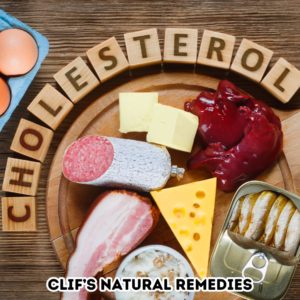
People with High Cholesterol Live Longer! Exploring Cholesterol and Longevity 🌿
In the world of health, few topics stir as much controversy as cholesterol. For decades, we’ve been warned about the dangers of high cholesterol and its association with heart disease. However, recent research has thrown a curveball into this narrative, suggesting that individuals with high cholesterol may actually live longer. This intriguing concept challenges conventional wisdom and prompts us to reconsider our understanding of cholesterol and longevity.

Despite the prevailing belief that high cholesterol is a harbinger of heart disease and early death, several studies have found an inverse relationship between cholesterol levels and longevity. Factors contributing to this paradox include the role of cholesterol in various physiological processes, such as hormone production and cell membrane function, which are crucial for overall health and longevity. Additionally, the association between low cholesterol levels and increased mortality from non-cardiovascular causes, such as cancer and respiratory diseases, further complicates the picture.

The traditional view of cholesterol as a villainous substance responsible for clogging arteries and causing heart attacks may oversimplify a complex physiological process. While high levels of LDL cholesterol (often dubbed “bad” cholesterol) are indeed associated with an increased risk of heart disease, not all cholesterol is created equal. HDL cholesterol (the “good” kind) plays a protective role by removing excess cholesterol from the bloodstream. Emerging research suggests that the ratio of LDL to HDL cholesterol and the size of cholesterol particles may be more important predictors of cardiovascular risk than total cholesterol levels alone.
The revelation that high cholesterol may not be as detrimental to longevity as once thought challenges current approaches to cholesterol management, which often focus on aggressively lowering cholesterol levels through medication. Instead of fixating solely on cholesterol numbers, a more holistic approach to cardiovascular health may involve addressing lifestyle factors such as diet, exercise, stress management, and sleep quality. Natural remedies and dietary interventions can play a significant role in improving cholesterol profiles and promoting overall health. For example, incorporating more plant-based foods, omega-3 fatty acids, soluble fiber, and antioxidants into your diet can help lower LDL cholesterol levels and reduce inflammation. Regular physical activity, particularly aerobic exercise and strength training, can improve lipid profiles, increase HDL cholesterol levels, and enhance cardiovascular function. Stress management techniques such as meditation, yoga, and deep breathing exercises can mitigate the harmful effects of chronic stress on cholesterol levels and overall well-being.

The paradoxical relationship between high cholesterol and longevity challenges our preconceived notions about cholesterol and its impact on health. While elevated cholesterol levels may not be as ominous as once believed, it’s essential to adopt a nuanced understanding of cholesterol and its role in the body. By focusing on comprehensive lifestyle interventions and natural remedies, we can optimize cholesterol levels, improve cardiovascular health, and enhance longevity. So, what are your thoughts on this thought-provoking phenomenon?
Do you believe that high cholesterol could hold the key to a longer life? Let’s continue the conversation.
check out our natural remedies






